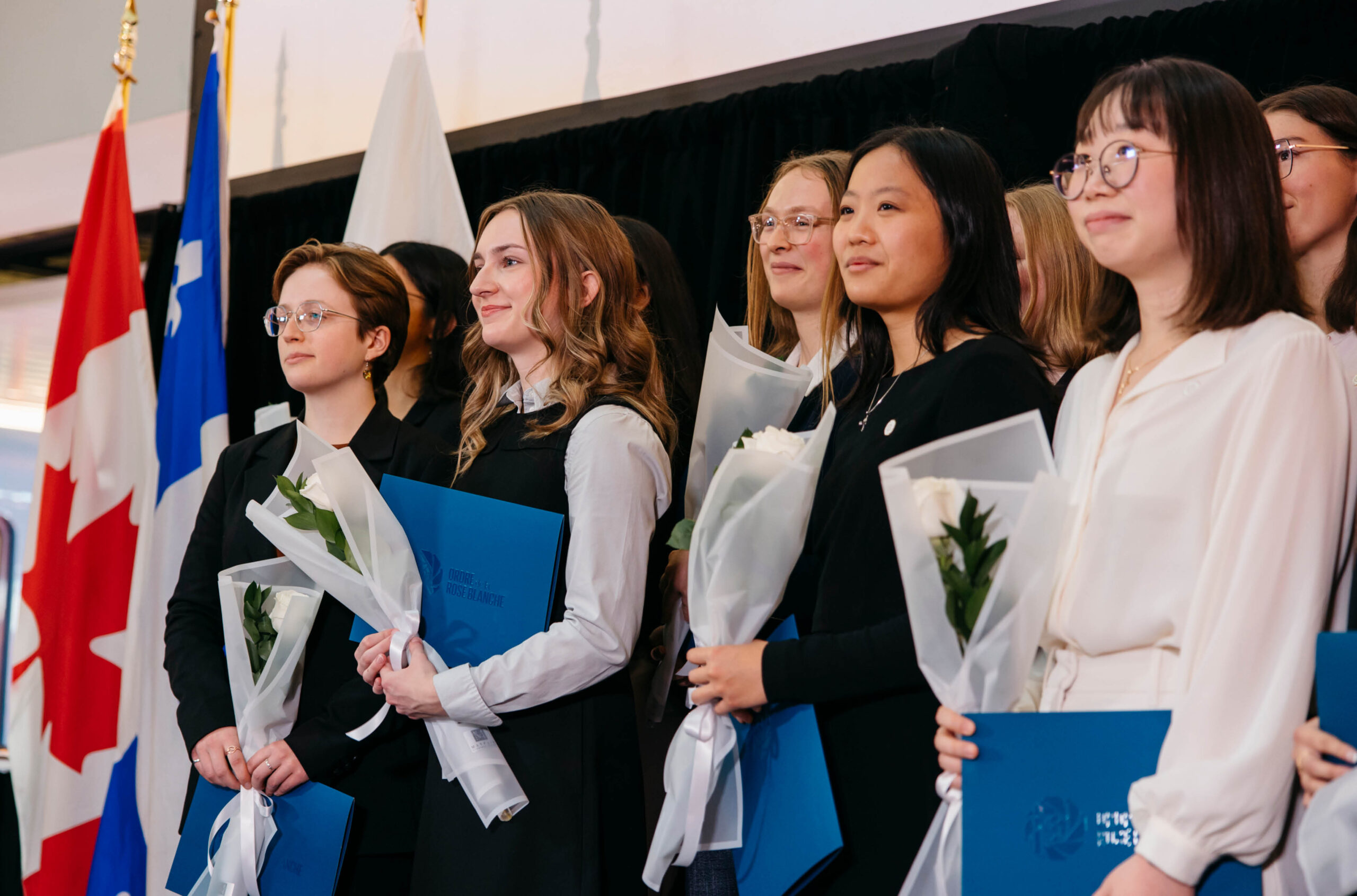There needs to be better access to study abroad programs for equity-deserving students
By increasing access and using better marketing strategies, universities can ensure a more diverse applicant pool.

Studying abroad can be a transformational experience. It has been linked to increased academic and professional success, improved global awareness, and enhanced intercultural competencies. However, study abroad programs have remained largely inaccessible to equity-deserving students, even as postsecondary institutions have become more diverse. The typical study abroad student has been described as overwhelmingly white, female and affluent. On the other hand, racialized students, low-income students, first-generation students, and students with disabilities are still underrepresented in most study abroad programs around the world. Higher education institutions (HEIs) are increasingly invested in fostering equity, diversity, inclusivity and accessibility (EDIA) on campus to drive student success; as such, it should be an institutional objective for HEIs to increase access to study abroad programs so that all students can reap the benefits of studying abroad. In order to effectively increase access, we must first ask: what are the most common barriers to studying abroad for equity-deserving students?
Barriers
Cost. The existing literature overwhelmingly confirms that financial cost is the most frequently cited barrier to studying abroad. Employed students may also factor in the opportunity cost of the income lost during their time spent abroad, especially if they also have familial obligations to take into consideration.
Low awareness of program outcomes. Students, even including those with prior travel experience, are often unconvinced that studying abroad can be academically or professionally beneficial. However, they may become more interested if study abroad programs are promoted as a means of academic, professional, and personal growth, rather than as a form of tourism.
Gaps in promotion. In their qualitative analysis of electronic advertising of study abroad programs, researchers Mary K Gathogo and David Horton Jr. found that the images used were almost always non-racialized, able-bodied students. Amy Yeboah, an associate professor at Howard University, also notes that study abroad programs may use neocolonial language in their marketing materials such as “the world is our classroom” or “your discovery. Our people.” Dr. Yeboah aptly points out that this language echoes “Western ontologies of materialism, recapitulate the axiology of conquering, and embrace a worldview of control and mastery” that is “unsurprisingly antithetical” to students from minority backgrounds in the U.S. context.
Social and cultural capital. The typical study abroad student often grows up in a family that normalizes international travel, influences their choice of destination, and is actively involved in pre-departure preparation. These students often also have a strong social network of friends and family around the world that can further help them visualize and plan for their study abroad experiences. These privileges and networks may not always be available to first-generation postsecondary students or to racialized students whose social networks and cultural knowledge may not necessarily extend to typical study abroad destinations.
Lack of culturally relevant programs. There is very limited culturally relevant programming for racialized students despite research that many students are motivated to study in destinations that enable them to learn about their heritage.
Outlined below are some proposed recommendations to address these barriers in order to increase the uptake of study abroad experiences among equity-deserving students.
Recommendations
The government of Canada launched the Outbound Student Mobility Pilot in 2019, allocating $95 million over five years to improve the uptake of outbound mobility programs. Half the funds were allocated entirely to underrepresented students. However, many students are unaware of this funding and may find it daunting to go through a complex application process to receive it. Additionally, the pilot program only allows students to access the funding if they participate in Global Skills Opportunity-funded projects.
In contrast, the U.S. federal government offers the Benjamin A. Gilman International Scholarship Program to students with limited financial means. The scholarship application is easy to access, and its website succinctly lists eligibility criteria and deadlines. Most importantly, the website showcases a diverse range of alumni testimonials. Students can visit the website and find representation for the many intersections of their identities, which can help them visualize themselves studying abroad. The Global Skills Opportunity (GSO) program in Canada (run by Universities Canada, which is the publisher of University Affairs) has already demonstrated the positive impacts of reducing financial cost as a barrier to studying abroad. Providing individual-level funding to complement program-level funding can therefore promote higher levels of uptake among underrepresented students.
The YAALI (Young AfricanA Leadership Initiative) fellowship at Howard University is a U.S. example of culturally relevant heritage programming where students travel to various destinations in Africa to explore their identities, to reflect on the history of their destination country, and to offer community service. Canadian HEIs can develop similar programming through faculty-led programs. HEIs should identify faculty with an interest in leading students on a short trip at the tail end of their courses, ideally focused on themes of culture, identity, language, and the history of non-traditional study abroad destinations.
Canadian HEIs can also adapt existing programming in traditional destinations. The Douglass O’Connell Global Internship, formerly known as the Frederick Douglass Global Fellowship, is a fully funded study abroad program in London, U.K. for U.S. students from minority-serving institutions. The fellowship demonstrates a unique opportunity to leverage existing programming, as it explicitly addressed intercultural communication and themes of identity and encouraged community service. Students were surrounded by staff that validated their cultural identities and backgrounds. The fellowship also included a class tour of Brixton, a London neighborhood that gave students an opportunity to connect with other members of the African diaspora and to reflect on their own identities. Canadian HEIs can also adapt existing programming to better serve the needs of underrepresented students travelling to traditional study abroad destinations.
Student mobility departments should also review their promotional materials to ensure that all messaging, photos and videos are inclusive and reflective of the many outcomes of study abroad programs. Representation is a powerful tool for increasing uptake of study abroad programming. Student mobility departments are well-placed to enhance the social and cultural capital of underrepresented students by facilitating peer-to-peer connections. Students are most comfortable speaking with peers that have gone abroad when deciding which experience is right for them. It is therefore crucial to recruit students from underrepresented backgrounds to share their experiences and to amplify their voices in marketing materials.
Key takeaways
Equity-deserving students face a broad range of barriers that must be addressed if we are to increase uptake of study abroad experiences among this student group. On the governmental level, the barrier of financial cost can be addressed by offering individual-level federal funding to supplement institution-level and provincial-level funding for study abroad experiences.
On an institutional level, student mobility departments should enhance their marketing materials and promotional strategies by emphasizing the academic and professional outcomes of studying abroad. They should also source and highlight testimonials from equity-deserving students that speak directly to some of the many concerns that other students may have about studying abroad.
Furthermore, they should foster opportunities for peer-to-peer connections among equity-deserving students to build social capital and broader understanding of study abroad opportunities.
Lastly, student mobility departments should aim to diversify the content, locations and accessibility (i.e. global-at-home programs such as COIL) of new programming to better serve a broader range of students, and to adapt existing programming to offer culturally relevant study abroad opportunities for racialized students. By supporting the implementation of these recommendations at different stakeholder levels, higher education leaders can help ensure that equity-deserving students can reap the many personal, professional, and academic benefits of studying abroad.
Featured Jobs
- Chief Administrative OfficerUniversity of Toronto
- Sociology - Tenure-Track Position (Crime and Community)Brandon University
- Architecture - Assistant Professor (environmental humanities and design)McGill University
- Finance - Faculty PositionUniversity of Alberta
- Engineering - Assistant or Associate Professor (Robotics & AI)University of Alberta














Post a comment
University Affairs moderates all comments according to the following guidelines. If approved, comments generally appear within one business day. We may republish particularly insightful remarks in our print edition or elsewhere.